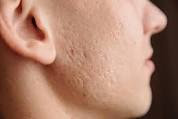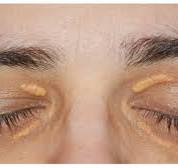Comprehensive Guide to Acne Scar Treatment
Acne scars, those lingering reminders of past breakouts, can be a source of frustration and self-consciousness for many. While acne itself can be challenging to manage, the aftermath in the form of scars can further impact one's confidence and overall well-being. However, the journey to clear, smooth skin is not an elusive dream. With advancements in dermatology and skincare, there's a plethora of effective treatments available to address acne scars and restore skin confidence. In this comprehensive guide, we'll delve into the world of acne scar treatment, exploring various options, from at-home remedies to professional procedures, to help you embark on your journey to clearer, radiant skin.
Understanding Acne Scars:
Before diving into treatment options, it's crucial to understand the different types of acne scars and how they form. Acne scars typically result from inflamed blemishes caused by acne breakouts. When the skin pores become clogged with excess oil, dead skin cells, and bacteria, it can lead to inflammation and subsequent damage to the skin tissue. The body's natural healing process may produce too much or too little collagen during the repair, resulting in the formation of scars. There are several types of acne scars, including:
Atrophic scars: These are depressed scars that appear as indentations or pits on the skin's surface. They are commonly referred to as ice pick, boxcar, or rolling scars.
Hypertrophic scars: Unlike atrophic scars, hypertrophic scars are raised and occur when the body produces too much collagen during the healing process.
Post-inflammatory hyperpigmentation (PIH): PIH refers to dark spots or patches that develop after an acne breakout heals. While not technically scars, they can persist for months or even years, affecting skin tone and texture.
At-Home Remedies:
For individuals with mild acne scars or those looking to complement professional treatments, several at-home remedies can help improve skin texture and reduce the appearance of scars:
Topical treatments: Over-the-counter creams and serums containing ingredients like retinoids, vitamin C, niacinamide, and alpha hydroxy acids (AHAs) can help promote cell turnover, fade discoloration, and stimulate collagen production.
Microneedling: Also known as dermarolling, microneedling involves using a small, handheld device with fine needles to create controlled micro-injuries in the skin. This process stimulates collagen production and enhances the absorption of topical skincare products, leading to smoother, more even-toned skin over time.
Chemical peels: Chemical peels involve applying a chemical solution to the skin to exfoliate the outer layer and stimulate cell turnover. This can help improve the appearance of acne scars, reduce hyperpigmentation, and enhance overall skin texture and clarity.
Professional Treatments:
For individuals with moderate to severe acne scarring or those seeking more dramatic results, various professional treatments performed by dermatologists or skincare professionals may be recommended:
Laser therapy: Laser treatments, such as fractional laser resurfacing and intense pulsed light (IPL) therapy, target the deeper layers of the skin to stimulate collagen production and promote skin rejuvenation. These treatments can effectively reduce the appearance of acne scars, improve skin texture, and even out skin tone.
Injectable fillers: Dermal fillers, such as hyaluronic acid or collagen-based injections, can be used to fill in depressed acne scars and restore volume to the skin. This temporary solution provides immediate results and can last for several months to a year, depending on the type of filler used.
Subcision: Subcision is a surgical procedure that involves using a needle to break up scar tissue and release the skin's attachment to the underlying tissue. This helps to lift depressed scars and promote collagen production, leading to smoother, more even skin texture.
Chemical peels: While chemical peels can be done at home, stronger, medical-grade peels performed in a dermatologist's office can provide more significant results for acne scar treatment. These peels penetrate deeper into the skin, targeting stubborn scars and promoting skin regeneration.
Combination Therapy:
In many cases, a combination of treatments may be recommended to achieve optimal results. Dermatologists often tailor treatment plans to address individual skin concerns and customize a combination of therapies to target different types of acne scars effectively.
Prevention and Maintenance:
While treating existing acne scars is essential, preventing new scars from forming and maintaining overall skin health is equally crucial. Incorporating a consistent skincare routine, avoiding picking or squeezing acne lesions, protecting the skin from sun damage with sunscreen, and adopting a healthy lifestyle can all contribute to long-term skin clarity and vitality.
Conclusion:
Embarking on the journey to clear, smooth skin is possible with the plethora of acne scar treatment options available today. Whether you opt for at-home remedies, professional treatments, or a combination of both, there's a solution to suit every skin concern and desired outcome. By understanding the different types of acne scars, exploring various treatment modalities, and prioritizing prevention and maintenance, you can reclaim confidence in your skin and unveil a radiant complexion that reflects your inner beauty. Remember, the path to clear skin may require patience and dedication, but the results are well worth the journey.
Call now
on our Mobile 8669086098 for booking an appointment
Kindly visit our website Derma Solutions to know more.




Comments
Post a Comment